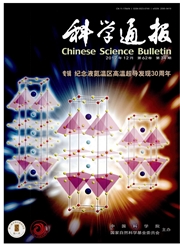

 中文摘要:
中文摘要:
免疫系统在维持机体正常生理功能中发挥着重要的防御作用.微重力环境是导致宇航员免疫系统机能降低的重要原因之一,其对免疫细胞存在广泛的影响,包括对免疫细胞发育、存活、分裂、细胞结构、免疫功能及信号传导等多层面的影响.在免疫细胞各亚群中,T细胞与巨噬细胞对微重力敏感,而自然杀伤细胞功能对微重力具有一定的抗性.目前对这些影响的研究还不是很深入,亟待对其发生的分子机制进行研究.深入阐明微重力对免疫细胞影响的分子机制将有助于相关预防及治疗药物与方案的研发,为太空飞行尤其是长期太空飞行提供必要的保障.
 英文摘要:
英文摘要:
The immune system has an essential role in protecting humans and animals from infection. Microgravity, an important characteristic in space that differs from that found on earth, is directly involved in the immune dysfunction found in astronauts. Microgravity has an extensive impact on immune ceils, including affecting cellular development, cell survival, the cytoskeleton, and intracellular signal transduction pathways. However, there are observable differences in how various immune cell types respond to microgravity. The function of natural killer cells is unaffected under microgravity conditions, while those of T cells and macrophages are much more susceptible to microgravity. Therefore, it is likely that the attenuated functioning of T cells and macrophages is responsible for the immune dysfunction found in astronauts in space. However, our current understanding of the immunosuppressive effects of microgravity is still limited. Furthermore, most of the current research has focused on only detecting the effects of microgravity and not the mechanisms underlying these effects. Therefore, future research needs to investigate these molecular mechanisms, which will then make it possible to identify potential therapeutic targets to prevent microgravity-induced immunosuppression. This research will be instrumental in preventing infection in astronauts during future missions in space.
 同期刊论文项目
同期刊论文项目
 同项目期刊论文
同项目期刊论文
 期刊信息
期刊信息
